How will Lexington 1 election candidates change the school board?
Voters in the Lexington 1 school district have a wide open field of candidates to chose from this November.
No fewer than 11 candidates are vying for three seats on the school board that oversees classrooms in most of central Lexington County. The top three vote-getters in the district will win seats on the seven-member board for the next four years.
All three seats are open after incumbents Jada Garris, Kyle Guyton and Timothy Oswald declined to run for new terms on the board.
The State asked each candidate for their views on how the school district operates, and what the board should do moving forward. Here are their answers.
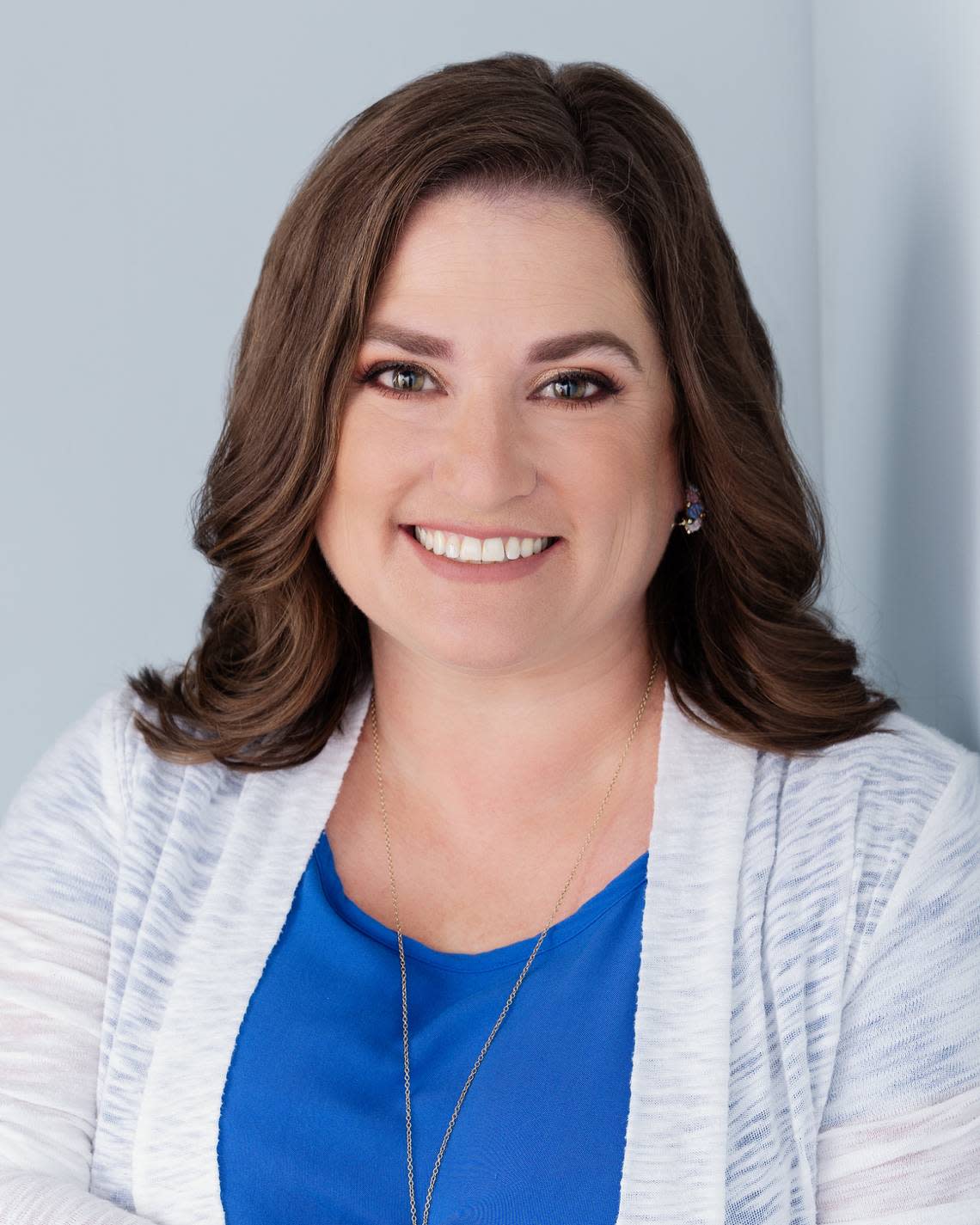
Harriet Poe Coker
Age: 42
Occupation: Stay-at-home- mom, substitute teacher at Centerville Elementary School
Education: Bachelor’s degree in Business Management from Clemson University in 2003. Master of Business Administration from the University of South Carolina in 2005.
Political or civic experience: I have volunteered in multiple roles in the district and Gilbert community. I served as the secretary, treasurer (twice), and vice president of GPS PTO, treasurer of Cub Scout Pack 60, and as a District One Parent Ambassador for both Gilbert Primary and Gilbert Elementary. I’m currently the PTO president at Centerville Elementary School and serve on the Superintendent’s Parent Advisory Council. I have served on the Lexington One Educational Foundation board since September 2020. I’ve been a member of the Clemson Women’s Alumni Council since 2016 and have served on the executive board three times (social media chair, local arrangements chair, secretary).
Campaign website: www.CokerLex1Board.com
Why are you running for the school board?
I believe all children matter and it’s our duty to help each and every one reach their highest potential. This looks different for each child, and teachers and school staff members need to be given the best resources and support to make this happen. It takes a village, and I want to help bridge the gap between the district, staff, students, and parents, so that we are one community working together for one focus — our students. One Community. One Focus. Together as One.
If elected, what would your two or three priorities be during your first year on the board?
My top priority, if elected, is to make it easier for parents to request educational assistance for their children. Many parents have concerns about their child’s academic performance but aren’t sure how to ask for help, especially at the beginning of the school year. To start, I would like to add a section to the online registration form where parents can alert the school of their concerns and ask for assistance. I envision options for parents to select that they have concerns with their child’s math, reading, and writing skills, as well as asking for information about developing a 504 or IEP for their student. Another priority of mine is to provide teachers, staff, and administrators with a way to voice concerns and feedback on district policies without fear of retaliation or repercussions. The school board and central services staff need to know what works, what doesn’t work, and how their policies affect staff on a daily basis.
What unique skills or life perspective would you bring to the school board?
As a District One parent and volunteer for the past 10 years, I’ve been able to see what works and what doesn’t work, or at least what seems to work for some and not others. I’ve served students, staff, teachers, and administration as a volunteer, PTO board member, SIC member, parent ambassador, and substitute teacher. While all of these are important, I believe subbing at Centerville Elementary School for the last two years has provided me with a unique perspective that will be very beneficial as a member of the school board.
What current practice or policy of the school district would you preserve or enhance? Why?
I would enhance our school safety policy to include a dedicated SRO for each school. I am proud of Lexington One’s current external threat assessment and response system, and their relationship with the Lexington County Sheriff’s Department. However, we can better respond to threats if an SRO is on school grounds for the entire school day.
How should the school board respond to controversies over subjects or materials taught in schools?
The school board should always respond to any matter, not just controversies, with grace and understanding. The board needs to listen to concerns, research the issue(s), and respond in a way that puts the interests of the students first. Especially when discussing controversial subjects, we must be respectful and professional.
How would you grade the school district’s handling of the COVID-19 pandemic? What would you have done differently?
I think Lexington One did a great job handling the Covid-19 pandemic. While they were bound by CDC and DHEC policies, the district worked within those parameters to meet the needs of our community. They worked especially hard to make sure all students were able to have access to the Internet to be able to participate in online learning and complete assignments. The district’s online learning academy gave parents the choice to have their child educated in the safest and best way for their family. The only thing I would have done differently would have been to determine a way to allow parents to volunteer during this time. The district had a duty to keep students and staff safe and healthy during the pandemic, but it would have been nice to provide teachers and staff with more hands-on support during that difficult time.
Richard Gehling
Age: 69
Occupation: 30+ years DoD consultant, 15 years local business owner
Education: Some college at Armstrong Atlantic State University and Miami Dade College
Political or civic experience: Newcomer to politics!
Why are you running for the school board?
I am running to promote/preserve conservative values for my grandkids and all the kids in Lexington District 1. I believe our kids deserve a sound education that focuses on reading, writing, and math. Let’s get back to common sense basics.
If elected, what would your two or three priorities be during your first year on the board?
It’s all about transparency which leads to trust! This applies to all things, especially the curriculum and policies in general. I have many priorities which include eliminating the teaching of CRT/ SEL in our classrooms and eliminating the explicit books in our school libraries. In addition, our school district also needs more financial oversight.
What unique skills or life perspective would you bring to the school board?
With over 30 years between the Air Force, DoD, and Pentagon, I know firsthand what is needed to get our school board back on track. I also have grandkids that will be in the district, and I hear from my employees/see what has been going on locally, which has played a big part with my getting involved and running for school board. Bottom line, we need to get back to the basics and stop playing politics.
What current practice or policy of the school district would you preserve or enhance? Why?
I would preserve their practice of offering so many school course choices and extracurricular activities. Extracurricular activities are a way to reinforce the lessons learned in the classroom. This helps students apply their academic skills in real-life ways, and provides a well-rounded education. Plus, it adds a sense of accomplishment and fun to the mix.
How should the school board respond to controversies over subjects or materials taught in schools?
They should listen and hear from parents and teachers who are bringing this controversial material to their attention. Not only should they listen, they should provide an action plan to remove these controversial items in a step-by-step plan to prevent these items being taught in Lexington One schools. They should listen and figure out a solution that can be voted on. This transparency will foster goodwill and trust from the parents and the community!
How would you grade the school district’s handling of the COVID-19 pandemic? What would you have done differently?
Lexington District One went through the pandemic without any set policy from the board. The superintendent set the policy and it wasn’t agreed upon by most parents. I would’ve called a board meeting where the board heard from the parents then voted to implement a Covid policy to benefit all with flexibility/exceptions.

Aaron Granade
Age: 37
Occupation: Senior Software Developer
Education: Some college
Political or civic experience: I have served the community as a children’s pastor for over 25 years.
Campaign website: aaron4schools.com
Why are you running for the school board?
I am running to ensure my son and daughter have access to the best education they can. I am terribly saddened at the recent state of education when it comes to social, moral, and ethical practices, as well as tyrannical and draconian COVID measures, including masking and quarantining perfectly healthy children. I have become known as the candidate who will fight for truth and accountability. I will continue to fight for parental autonomy, as well as for the students and teachers when they feel unheard or misunderstood by the district or other board members.
If elected, what would your two or three priorities be during your first year on the board?
I will present policies to greatly enhance and ease access to public information, including regular public reporting on FOIA requests, a permanent online repository for all releasable information, and no fees for FOIA requests. I will also work to enhance parents’ access to understanding how their child is being taught through presenting and promoting policies that establish easier communication channels with teachers, allowing video and audio access in the classroom, and expanding on the minimum requirements for evaluating inappropriate library materials. I will also encourage the school board to provide regular community forums to allow the public opportunities to address them outside of the acceptably restrictive time for public participation during board meetings.
What unique skills or life perspective would you bring to the school board?
Having served children in the church for several decades, I am uniquely equipped to understand the emotional and behavioral needs of individuals, as well as the challenges in leading and teaching large groups of children. As a professional software developer, I have a grasp on the availability and possibilities of utilizing technology to support the vision and policies of the district, as well as better engage the community in their relationships with our schools.
What current practice policy of the school district would you preserve or enhance? Why?
Our foreign language immersion programs are absolutely amazing. I have watched many children, including my son and two nieces, grow in their skills as they became bilingual. I also engaged in extensive foreign languages in school long before the immersion programs existed, taking multiple languages simultaneously. However, there is always room to grow and develop. There are certain aspects of these programs that are not as challenging as the students enter middle and high school, according to some teachers I have spoken with. I have also heard nightmare scenarios from teachers as to how the contracts with non-native immersion teachers are discriminatory and financially predatory, and that the contracts are not renewed (or notice of non-renewal given) early enough in some cases to allow for the teachers to find other work according to their work visas. We must provide better conditions for these precious people. I intend on implementing policies to support our immersion teachers. They are truly the jewel of our district.
How should the school board respond to controversies over subjects or materials taught in schools?
The school board should implement policies to continuously evaluate inappropriate materials that could be exposed to our children. I have already battled with the district over issues involving the sexualization of our children, and I will never stop. We must shield our students from sexual, racist, and other inappropriate content that sometimes comes conveniently wrapped inside the banner of social-emotional learning that our schools proudly wave. They are children. I have policies ready to go from day one that enhance how materials at each school are assessed for content-appropriateness, without censorship. I am looking forward to working with school board members to give the parents their voice and their choice in protecting their children while in our care. It is not the school’s place to affirm or disaffirm the sexuality of our children, nor is the school the default arbiter of any child’s psychological, behavioral, social, or emotional condition.
How would you grade the school district’s handling of the COVID-19 pandemic? What would you have done differently?
It was an abundantly devastating failure. Masks have done nothing. In fact, to many children, forcing them to wear masks inhibited learning and may have caused behavioral, emotional, and even physical harm. Quarantining healthy children, sometimes even when they came in contact with someone outside the district’s control, and walking lock-step with the Department of Health and Environmental Control without question caused serious harm to the credibility of the current school board and the district. It also did absolutely nothing to quell the rate of COVID transmission in our schools and community. In the future, I intend to pass policies that err on the side of freedom, not the control of the government. I will never vote to mask anyone or quarantine a healthy person. The contact tracing measures that were implemented were tyrannical at best. Furthermore, disallowing parents access to the schools during this time while simultaneously allowing students, teachers, vendors, after-school providers, etc... unfettered access was atrocious. I know of students who came in contact with infected employees who were allowed access, but the parents were simply too great a risk? Never again.
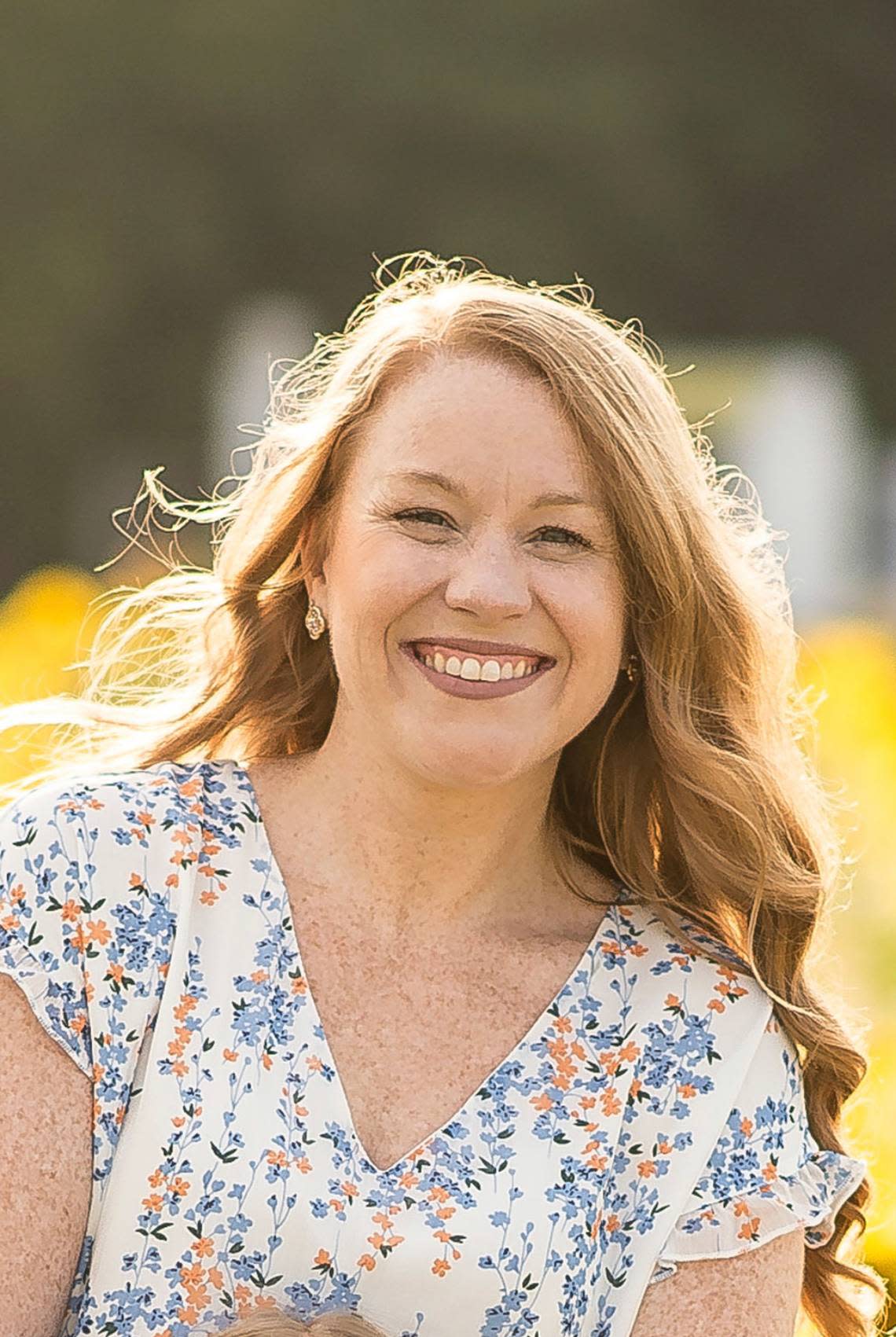
Dana Homesley
Age: 34
Occupation: Administrative Assistant
Education: Clemson University (2010)
Political or civic experience: For 11 years I have worked for a statewide organization representing local government in SC. This organization is non-partisan and non-profit but works to empower county officials through education, advocacy and collaboration.
Campaign website: https://www.facebook.com/DanaHomesleyForLexington1SchoolBoard
Why are you running for the school board?
I am running because I want to be a part of creating a board that serves its citizens through proper policy, fiscal transparency and responsibility, proper oversight, and by hearing the wishes of our constituents, keeping myself informed and the community informed of the work of our board and district. It is because of our outstanding schools, teachers and staff, students, parents and community that I felt compelled to run for school board. I recognize that the decisions that a school board makes effects every citizen who lives in the Lexington One attendance area. A quality public school system is the backbone of any thriving community.
If elected, what would your two or three priorities be during your first year on board?
I would like to see town halls brought into this district, policy manual overhaul, and equitable facilities across the district, which can only happen with proper financial oversight and transparency. Finances, safety and security, and working on the academic learning loss and achievement gaps are top priorities. We have been missing our targets for years now, even before the pandemic. We need a working relationship and two-way communication between the community and the board — our students and staff deserve it. We need an independent internal audit and to take a deep dive into our finances to find out how every single dollar is spent and restore trust back between our district and the community. We need to curb wasteful spending so that those dollars can be funneled into our classrooms and put toward facility upgrades and equipment for our older, rural schools. We have wonderful facilities and buildings to be proud of, but we also have unfairness in how our resources are distributed across schools. Great schools make great communities.
What unique skills or life perspectives would you bring to the school board?
I recognize the importance of a well-functioning school board and have actively followed the board for over a year and a half. I decided to educate myself on how this board operates by attending meetings, studying board governance, policies, processes, procedures, and law. I have thorough knowledge of the Freedom of Information laws that govern schools, dictating how they communicate and provide information with the public. I have faithfully attended meetings including special-called meetings, ad hoc committee meetings, board workshops, and was the only citizen who attended the meetings for the semi-finalist interviews regarding the superintendent search. These meetings lasted a total of nine and a half hours over the course of two days. At public comment in board meetings, I share information and more and will continue to do so as a board member.
What current practice or policy of the school district would you preserve or enhance? Why?
Our policy manual needs a complete overhaul. Some of our policies are over 30 years old, policies that overlap one another, or policies with links that take you to other policies that have nothing to do with one another. No new policies should be made until we review and revise the current policies we have. One of the most important responsibilities of our board is to develop and revise policy. I have attended the ad-hoc committee meetings where board members are going through and revising our B policies which are school board governance and operations. These policies should include input from students, staff, parents, and the community.
How should the school board respond to controversies over subjects or materials taught in schools?
Our board should respond to controversies over subjects or materials taught in schools. One of the responsibilities of the board is to approve curriculum brought forth by the district from the S.C. Department of Education. The board should listen and take the community’s concerns and questions in consideration without judgment. Then take those concerns and apply that to policy, law, and their duties as a board member before making a decision. Our community deserves our very best — someone who will advocate for all students and staff.
How would you grade the school district’s handling of the COVID-19 pandemic? What would you have done differently?
What happened in our district that didn’t happen in other districts is that our board decided to delegate full authority to the superintendent and the district regarding COVID strategies which include: masking protocols, COVID mitigation, communication with the community, school closings, and ESSER fund allocations with no discussion or oversight from the board. What I would have done differently is assume my role as a board member by maintaining the mission, vision, and goals of the board, and preserve the health and safety of our students and staff without sacrificing academic progress.

Katie McCown
Age: 37
Occupation: Realtor
Education: 2 year Associate in Arts
Political or civic experience: Moms for Liberty
Why are you running for the school board?
I am running for school board to give the parents a voice because I believe they are the primary stakeholders in their children’s education. I would like to create more transparency within the board by way of an internal auditor. And I would like to get back to the basics in education by eliminating social and emotional learning in our classrooms.
If elected, what would your two or three priorities be during your first year on the board?
My first goal on the board would be to add more transparency by adding an internal auditor to the district budget. The second goal would be to create a town hall experience for parents and board members to be able to have open dialogue so there is more communication.
What unique skills or life perspective would you bring to the school board?
I’m a great negotiator. I am a hard worker. I am a parent of three children attending elementary, middle and high school in this district.
What current practice or policy of the school district would you preserve or enhance? Why?
I’d like to enhance the policy for the public speaking portion of the board to include follow-up so that parents feel heard.
How should the school board respond to controversies over subjects or materials taught in schools?
The school board has the power to make changes in curriculum and I think there needs to be more focus on making sure the children are learning the material necessary to make them successful.
How would you grade the school district’s handling of the COVID-19 pandemic? What would you have done differently?
I would grade their handling of Covid an F. I think there was gross overreach into our personal lives. There was coercion to receive the shot by our superintendent. There was a breakdown in trust between parent and district. They accepted funds they never should have accepted, which trickled down mandates and forced quarantines. Which lead to a terrible decline in our children’s education and thus leading to very low test scores. Our children should have been able to come to school if they felt comfortable, had the choice whether or not to wear a mask and never quarantined. Healthy children should have never been sent home, instead we should have treated this like any other illness. If a child shows symptoms then they are sent home and are able to return once those symptoms are gone. That is how I would have handled Covid.
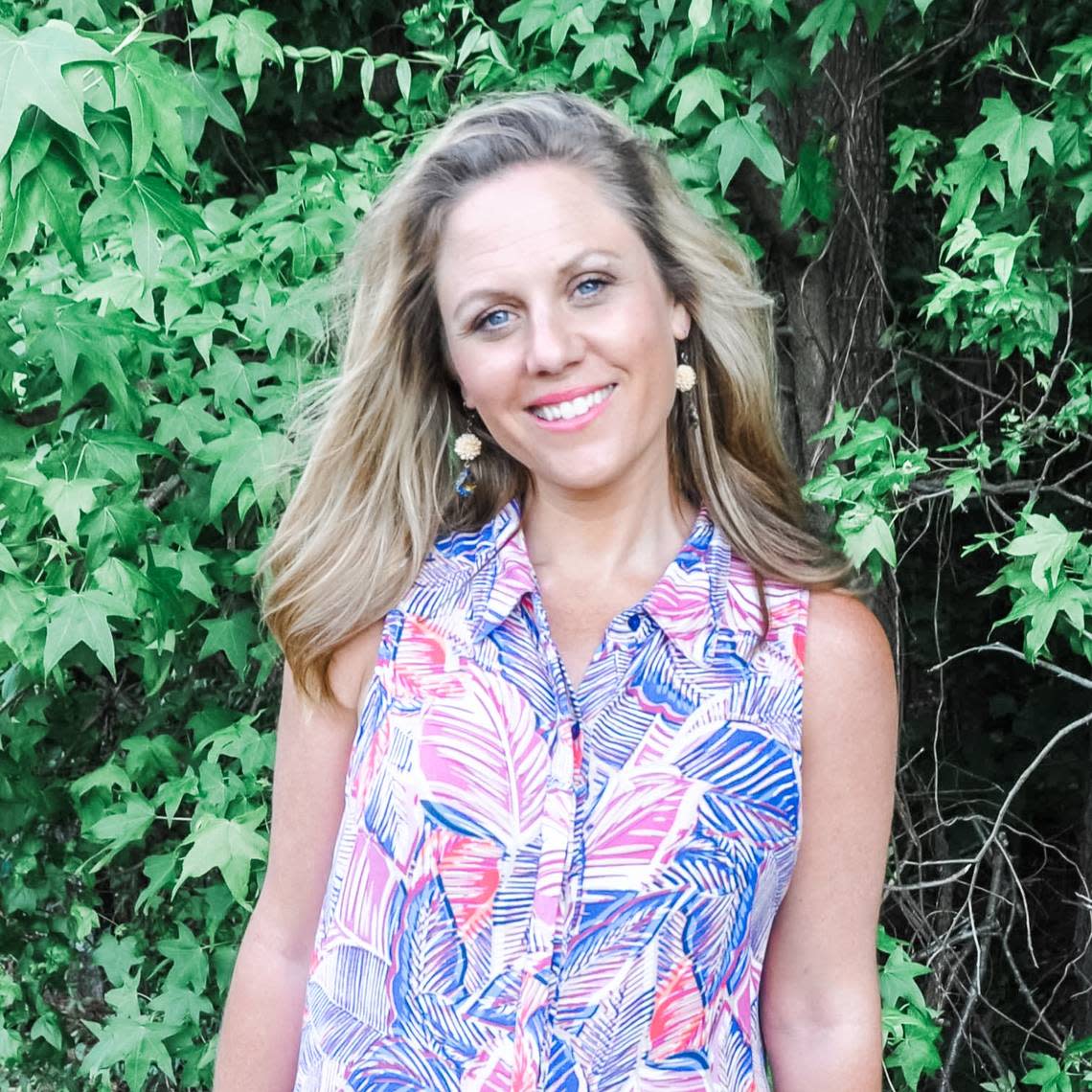
Andrea Nazarenko
Age: 40
Occupation: Psychologist
Education: PhD in Clinical-Community Psychology with concentration in Quantitative Psychology (USC); master’s of Psychology In Education (Columbia University in New York); master’s in Clinical-Community Psychology (USC); master’s in Applied Statistics (USC); Bachelors in Psychology with Minors in Spanish and Sociology/Anthropology (Fairfield University in CT)
Political or civic experience: President and co-founder of the American Health and Freedom Coalition, SIC at Lexington One schools; Develop Lexington County Responsibly
Campaign website: fb.com/drandreaforlexingtonone
Why are you running for the school board?
Simple reason: I am running for school board because I have a unique skill set in community-level change and accountability systems, and know that I can improve the needs of the district. I am running to make our schools and community better.
If elected, what would your two or three priorities be during your first year on the board?
1. Reestablish trust between parents, teachers, administrators, and the district; 2. Increase transparency in action, which includes improving communication structures; 3. Increase accountability at a systems level, which includes reflecting on the district’s needs from a non-emotional and non-defensive stance to understand areas for improvement, as well as evaluating currently implemented programs, policies, and procedures to understand effectiveness (and de-implement programs that waste teacher time and taxpayer money).
What unique skills or life perspective would you bring to the school board?
I am an expert in accountability systems and system-level change. As a professional evaluator and psychologist I am able to use data to help people improve without an accusatory and punitive lens. Accountability does not have to mean “blame.” Accountability means doing what it takes to achieve outcomes in a cost effective and proactive way. When outcomes are not met, accountability means being open and transparent while engaging in a systematic process of improvement. Ultimately, we need to detach ourselves from our shortcomings as a district. We need to look at our strengths and weaknesses objectively. Instead of yelling at each other, fighting, and blaming, we need to join together and fight for the future of our kids. I am experienced in this. In my consultancy, I work with organizations (public, private, school, and governmental agencies) to bring hard issues to the table in such a way that that core issues are on the table and can be solved in a logical way.
What current practice or policy of the school district would you preserve or enhance? Why?
I would enhance our advisory councils. As a community psychologist, I honor the expertise and perspectives of teachers, parents, community members, and students. We are so blessed to live in Lexington, where we have so many resources and knowledge available to us. We simply need to enhance our district processes and structures to better tap into these resources. It is not my job as a school board member to push my personal values and beliefs onto others. It is my job to provide space for stakeholder input, and to develop policies that reflect the differing perspectives. Fortunately, the foundation for a communication system like this already exists. We simply need to reinforce, enhance, and prioritize the meaningful use of feedback. Speaking 3 minutes at a meeting is insufficient for change. We need to provide meaningful opportunities for feedback and discussion at a school-level (e.g., parental town halls; community/taxpayer town halls; student advisory councils; teacher advisory councils). Some of these councils already exist; however, there are important ways to improve in order to make them meaningful mechanisms for change. For example, we need spaces where teachers can discuss issues without repercussions; and we need mechanisms to take the teacher feedback and translate it to action. Likewise, we need student advisory councils that represent all students, not just the top performing students (because the top performing students differ in important ways from the student at risk of dropping out). Providing students, in particular, a voice in their education is critical for establishing the next generation of leaders. We need more students advising the board. Ultimately, I would like to establish a school environment where stakeholders (including students) feel empowered to express concerns, offer solutions, and — most importantly — be a part of the change process. I have extensive experience shaping this type of system.
How should the school board respond to controversies over subjects or materials taught in schools?
Most importantly, we must be open and unbiased in our approach. The board is, among other things, a quality assurance committee. When we bring our own biases and prejudices to the table, we are no longer acting in the best interest of the district. We are acting in the best interest of ourselves. The most effective way to do this (since we are all human, after all) is to have established processes in place to address concerns. These processes must be rooted in upholding the law, and provide the freedom for families to opt-in and opt-out of subjects/materials according to their family value system and culture. The details of what this process could look like would differ across controversial topic — e.g., books vs curriculum vs assignments. However, an example of a process that could address controversial material in general is as follows: 1) Policies are set to support parental involvement in the classroom (for example, access to libraries during off school hours or digital collections) and for the school to establish procedures and activities to invite parents in to the classroom. This creates more transparency and reduces mistrust. 2) If a parent observes something concerning, they may report the issue to the school administrator. The school administrator reports the concern to the board. This is done to increase lines of communication; however, the first line of response must remain at the local level. There is no need for overstep if issues can be handled locally. Also, the culture of the district must be one where the administrator is not “blamed” or punished for being open about a concern. This would work against transparency. We must allow for communication of controversial issues and take them seriously, without judgment. We must be open. 3) If the situation is not resolved, the parent will have a simple and direct line of communication to the board. This does not have to be at board meetings, where some parents feel uncomfortable speaking in a public forum. This communication structure can be private. 4) The board would have established processes to review the issue in an objective and timely manner. The process should involve obtaining input from key stakeholders, including the parent, student, and teacher. The same process should be used regardless of the controversial content. This creates a fair system where issues are taken seriously and without emotional attachment. 5) The board reviews the data obtained (first individually, then as a group) and creates a solution that fits the best interest of the individual student (respecting the concern of the parent), and a solution that fits the school as a whole. A systematic process for dealing with controversial issues is critical because part of the problem in the past has been the personal and emotional attachment to the issue by school members (including the board). As a board, we need to step away from personal attachments and defensiveness. If there is a problem, we need to acknowledge the wrongdoing and address it in a logical, data-informed way. This is the pathway to transparency and improvement.
How would you grade the school district’s handling of the COVID-19 pandemic? What would you have done differently?
Our national and global response to the pandemic was a failure, at best. Our regulatory agencies lost sight of the ethical principles that maintain data-informed decision making, and politics and corruption got in the way of our individual rights as American citizens. As the president and co-founder of the American Health & Freedom Coalition, I actively fight daily to ensure that the governmental infringement on our freedoms never happens again. The coalition is a unifying movement of all grassroots groups and organizations that are fighting to hold our regulatory accountable, maintain the integrity of the scientific process, and activate communities to engage in legislative action. Freedom for all Americans and upholding the American values of liberty and bodily autonomy is a passion of mine. That being said, our school district was a down stream agency in the COVID response and was limited in their ability to enact change. We have a system where the district refers to DHEC for guidance on public health. Unfortunately, the guidance provided by these public health officials was corrupted. ... Regardless, this misconstruing of information contributed to the continuation of masking on our youth — a decision based on opinions, not science. Indeed, we are now seeing the scientific evidence that lockdowns, virtual learning, quarantining, and masking harmed our youth. It is a shame that we made decisions without scientific support — at the cost of our youth. The major fault is the corruption of the regulatory agencies that influence society, and the legal requirements of the district to follow policies therein (e.g., South Carolina Code of Laws Chapter 1, Title 44 which would remove liability protections on the district if they deviated from DHEC Exclusionary criteria). From the district-level, there were two notable things that I personally believe they should have done differently. First, they should have stepped up to advocate for our children sooner. We knew early on that our kids were being affected. Teachers saw the decline in academic performance and mental health. The district should have stepped up sooner to be the authority and protector of the schools. Second, they did not make reasonable accommodations for our most vulnerable students. Students with special needs were not handled appropriately or responsibly. These kids needed services in traditional ways. Many couldn’t mask. Parents were stuck without help in formative years of development. We should have protected these youth better. On the flip side, there were a two notable things that the district did to deserve accolades for during the pandemic. First, the district maintained the option of virtual schooling for families that did not want to mask youth or for families who did not feel safe returning face-to-face. We must always maintain options for families. Second, the district used its authority to influence changes in the regulatory agencies. This is evidenced in the letter all board members sent in January 2022 to the governor and Dr. Simmer, the Director of DHEC, regarding the DHEC Exclusionary criteria and the standing up against the quarantining rules. Our district needs to continue to advocate for the youth, stand up to corrupted policy making, and work closely with the General Assembly to ensure that the mistakes of the past are not repeated in the future. We must maintain individual liberties and the right of all children to learn in the environment that suits them best.
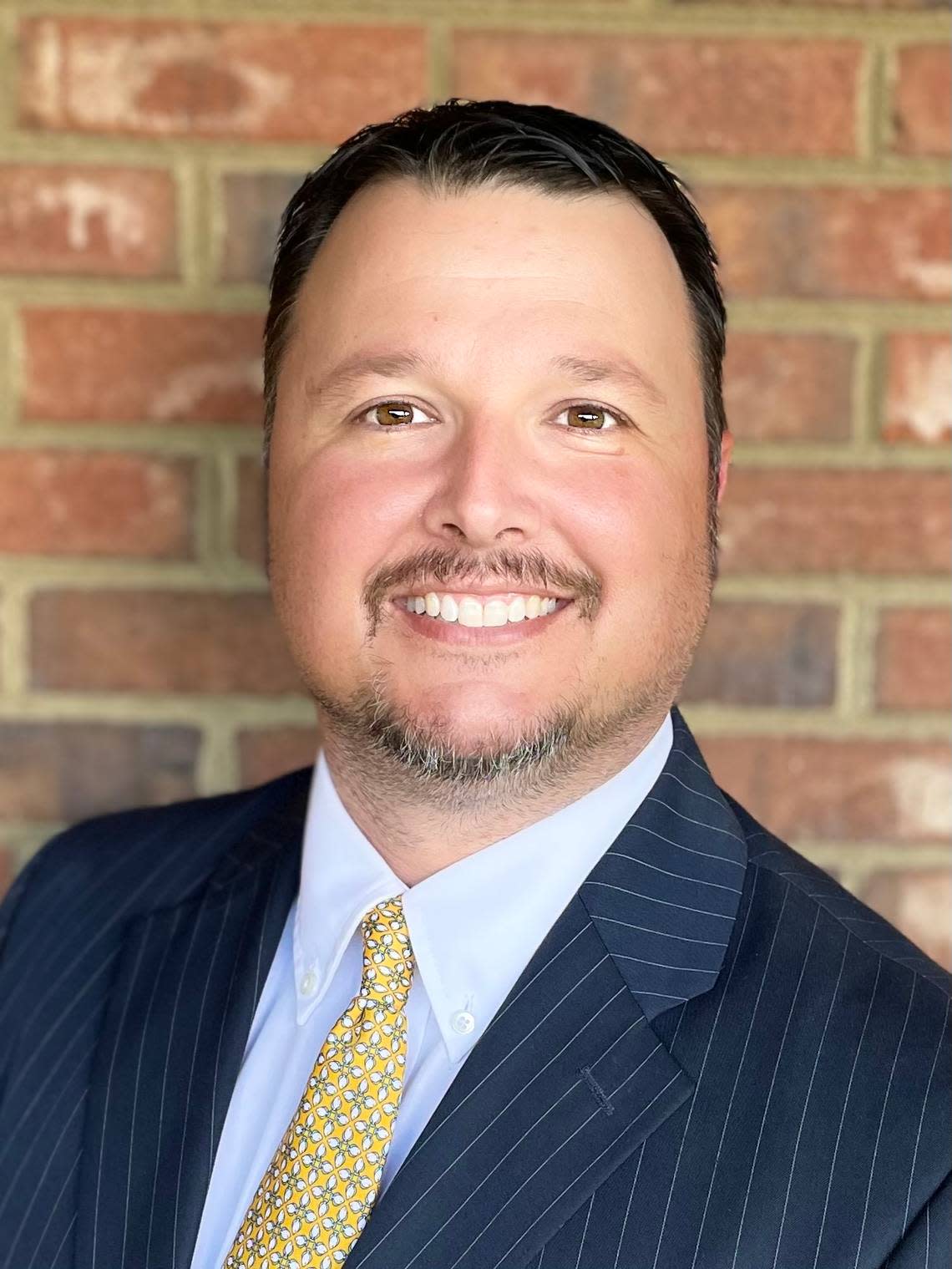
Nicholas Pizzuti
Age: 43
Occupation: Chief, Professional Services Contracting Office, SCDOT
Education: Bachelor of Science in Business Administration, Finance and Management, University of South Carolina
Political or civic experience: N/A
Campaign website: https://pizzutiforlex1.wixsite.com/pizzutiforlexone
Why are you running for the school board?
I have two main reasons for running: my two girls. As a parent, I feel it is my responsibility to instill the needed lessons of life to my children. I also want to bring the trust back between the public, parents and schools. In order to bring back the trust three things are needed: Transparency, accountability, and returning to the basics.
If elected, what would your two or three priorities be during your first year on the board?
Bringing back the trust needed between the public and the schools and also making sure there is open communication between all stakeholders.
What unique skills or life perspective would you bring to the school board?
First and foremost as a parent I know what is best for my child. I have also always been able to ask the tough questions and tell things like I see them. It will take someone like that to be a voice of reason for the board. Dealing with growth is a continuous issue in District One. My background in finance, construction and infrastructure has prepared me to take on the growth of the district.
What current practice policy of the school district would you preserve or enhance? Why?
I would like for there to be better communication between the board and the public. For too long it appears the board just hears the comments from the public but does not really listen. I also think the board needs to add more accountability to the district administration and not just rubber stamp anything before the board.
How should the school board respond to controversies over subjects or materials taught in schools?
By communicating with the parents. In the end the parents should have the final say in what their child sees.
How would you grade the school district’s handling of the COVID-19 pandemic? What would you have done differently?
I really cannot grade the district’s response to COVID-19. I think they made the decisions based on the information (right or wrong) that was given to them. Would I have handled it the same way? No. I would not have shut down the schools or completed all the contact tracing. There were perfectly healthy kids not in school or missing a sporting season. I saw seniors miss out on fun things that should have been great memories for them. Students got caught a year behind in studies and some are still trying to catch up. I am a firm believer that in-person instruction is the best procedure.
Mary Price
Age: 49
Occupation: N/A
Education: Bachelor of Science in Business Administration
Political or civic experience: Meals on Wheels driver (different county), PTA board member, class and school volunteer, Sunday school teacher
Campaign website: https://www.facebook.com/106702334581873/
Why are you running for the school board?
I grew up in Lexington District One and want to see it continue to be the best in the state. I don’t play politics and know I can be fair and objective no matter who is speaking or what issue is being discussed.
If elected, what would your two or three priorities be during your first year on the board?
School safety starting with discipline issues, fiscal accountability and transparency of how things work and why.
What unique skills or life perspective would you bring to the school board?
I have worked in marketing, bookkeeping and insurance and have the ability to review documents and procedures to hopefully increase fiscal responsibility with our taxpayers’ dollars and reduce liability issues caused by improper procedures.
What current practice or policy of the school district would you preserve or enhance? Why?
I would like citizens’ participation to be improved by allowing citizens a longer window to speak. Three minutes is not very long if you are nervous or have much to say.
How should the school board respond to controversies over subjects or materials taught in schools?
Materials brought forth as a concern should be reviewed by the board to evaluate if standards are being met, if laws are being followed and if the material is necessary to the subject.
How would you grade the school district’s handling of the COVID-19 pandemic? What would you have done differently?
There was no way to make everyone happy. However, without teachers and staff then schools are closed regardless. I would have checked with them to see how the majority wanted to proceed and looked for ways to alleviate concerns for those of the minority opinion to begin with.
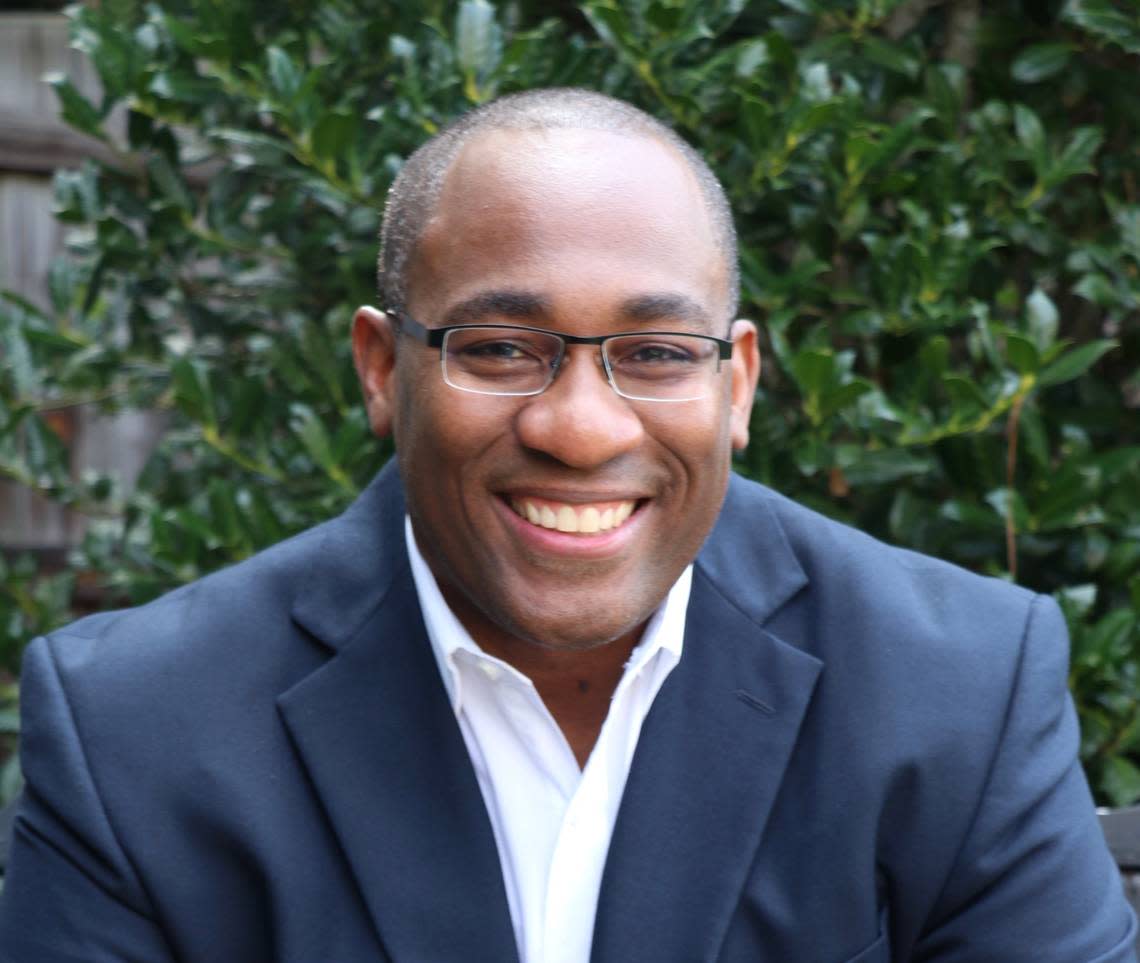
Chris Rice
Age: 52
Occupation: Utilities Operations Manager
Education: Mechanical Engineering Degree from Georgia Tech
Political or civic experience: Lexington One School Board candidate in 2018 and 2020, chairman of Mission Lexington (formerly LICS) Board of Directors, and chairman of Lexington One Educational Foundation Board of Directors
Campaign website: www.facebook.com/criceforlex1
Why are you running for the school board?
Lexington One School District is one of the best in the state but there are several areas that can be improved. I decided to run for the school board to help provide the necessary leadership to influence positive change and improvement in our district and in our school board. When elected, I intend to use my role as a board member to get Lexington One in better “S.H.A.P.E.” which is an acronym to describe my priorities: Service to Constituents; High Quality Education for Every Child; Accountability and Transparency; Prioritize District Resources; Empower Lexington One teachers.
If elected, what would your two or three priorities be during your first year on the board?
My first priority would be to make sure that our district is doing everything within their power to help our students recover from the cumulative impact of the pandemic on their academic achievement. My second priority would be to increase the transparency of the district in terms of financial transactions and decision making. My third priority would be to improve the district’s bus driver shortage problem.
What unique skills or life perspective would you bring to the school board?
Our district covers a large geographic area and services a host of communities that are very diverse. Some of these community differences include socioeconomic background, population densities, and educational interests/needs. It is important to have school board trustees that are familiar with and understand these differences. Since 2018, I have been fortunate to serve on the Board of Directors of Lexington One Educational Foundation, an organization that supports innovative educational projects and need-based initiatives at every school in the district. This has given me a clear view of the unique needs existing at each elementary, middle, and high school in Lexington One. This view will serve me well when determining board policies.
What current practice policy of the school district would you preserve or enhance? Why?
I would enhance the board’s policy for Fiscal Management by recommending that our school district hire an internal auditor who reports directly to the board. Unfortunately, there have been many unanswered questions and FOIA requests from Lexington One constituents over the last several years regarding financial transactions of the district. Having an internal auditor in place would allow for a better focus concerning these requests along with an increase in fiscal transparency for the school district and would provide the board independent appraisals, as necessary, of the efficiency of district operations and spending.
How should the school board respond to controversies over subjects or materials taught in schools?
The school board must keep an open mind to concerns when controversies over subjects or materials in school arise. They must listen closely to their constituents and especially our parents and teachers to understand and document their thoughts and concerns. Then the board must use this gathered information to communicate to the superintendent what these specific concerns are so the controversies can be properly addressed.
How would you grade the school district’s handling of the COVID-19 pandemic? What would you have done differently?
Considering that the Covid-19 pandemic was unprecedented territory for our community and in light of requirements imposed on the district by state health officials, I would grade the school district’s handling of the pandemic with a “B”. The main thing that I would have done differently in our district would have been to allow for some justifiable individual exemptions from the health protocol mandates and to implement a dual modality instruction model choice for all students.
Rhys Sage
Age: 55
Occupation: School bus driver
Education: BA Humanities, HND Computer Studies
Political or civic experience: Secretary of the Gower Labour Party
Campaign website: None
Why are you running for school board?
I want to reduce corruption within the system, get better value for taxpayers and remove the extra taxes that have been added over the years that are just going into pockets.
If elected, what would your two or three priorities be during your first year on the board?
Investigate any and all expenditures — what’s the money for, where is it going, is it necessary. I will be asking a lot of questions.
What unique skills or life perspective would you bring to the school board?
I will take my experience of my home education system and use that to bring out the best in this system.
What current practice policy of the school district would you preserve or enhance? Why?
Putting children and education first. That is exactly why the board and the district exist.
How should the school board respond to controversies over subjects or materials taught in schools?
Examine the subjects and materials to see if concerns are justified or not.
How would you grade the school district’s handling of the COVID-19 pandemic? What would you have done differently?
In hindsight it is easy to pick fault with things that were done when the situation was new and the future was unknown. The whole pandemic was handled poorly by all tiers of government — largely because things came down as demands without clear explanations.
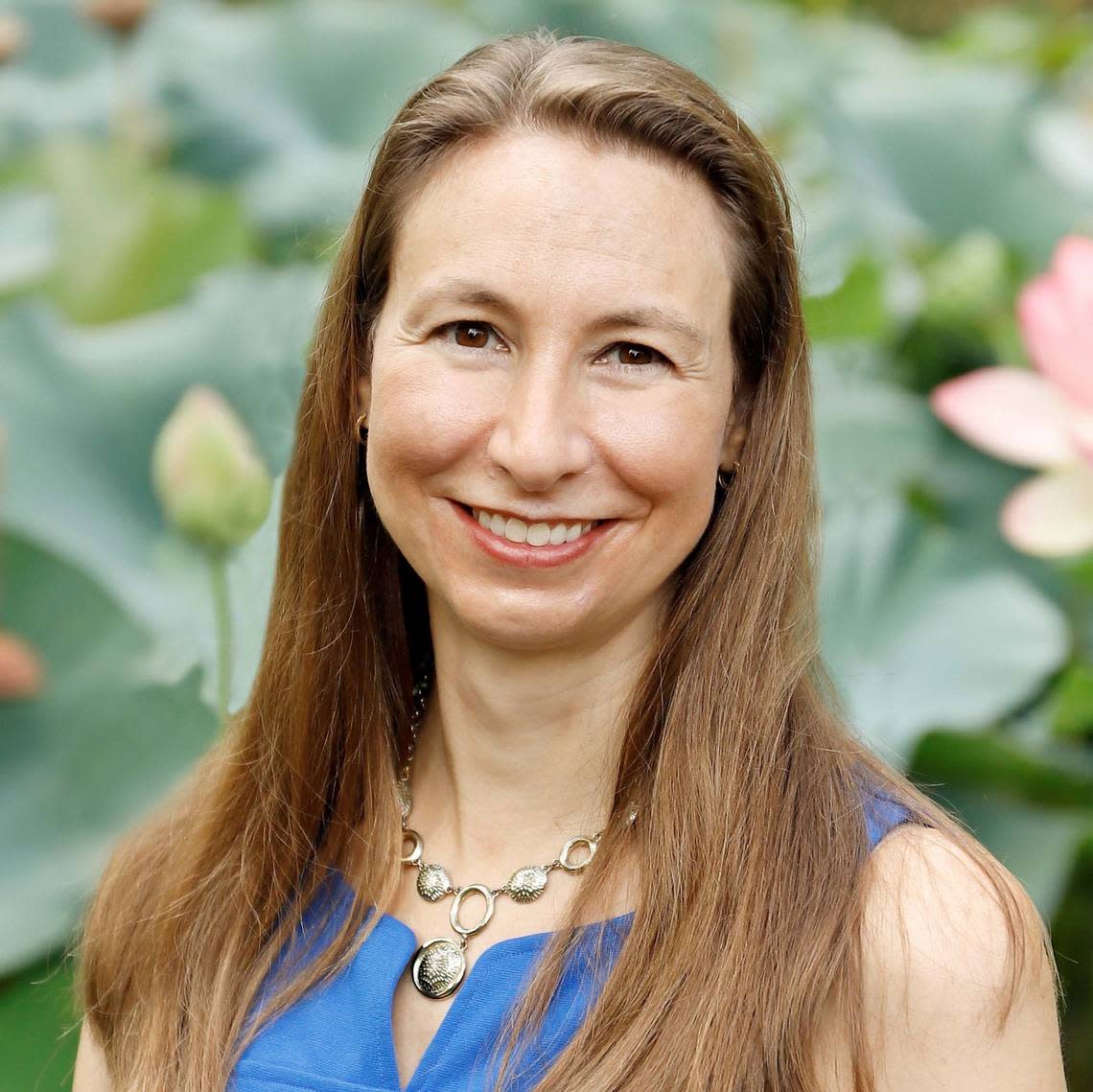
Beth Shealy
Age: 44
Occupation: Director of managed care and payer relations at Lexington Medical Center
Education: University of South Carolina Honors College, bachelor’s degree in psychology with a cognate in Statistics. University of South Carolina, Master’s degree in Social Work
Political or civic experience: Large group and small group leader for the children, pre-teen and youth ministry at Lexington Baptist Church for the past 10 years.
Campaign website: https://bshealylex1.wixsite.com/bethshealyforlex1
Why are you running for the school board?
I love our schools and community. I want to use my business and life experience to benefit our school system. I want to help build stronger ties between the school board, our community, and our schools. I believe in a quality public education for current and future students, and I want to help ensure our children receive the best education possible.
If elected, what would your two or three priorities be during your first year on the board?
I believe the priority for the school district this next year should be on recovery and moving forward from the COVID pandemic. Specifically, we need to prioritize identifying and addressing our student’s instructional gaps. We also need to prioritize helping our students recover from the social and emotional toll of the past few years. My focus would be to develop relationships with key leaders throughout the school district as I gain a true and deep understanding of current district processes. I would also prioritize connecting with teachers, parents, community members to gather input on district policy and process. Finally, I would prioritize championing this vision of recovery and getting parties to work together toward our ultimate goal of putting students first.
What unique skills or life perspective would you bring to the school board?
I have grown up in Lexington One and my three children currently attend Lexington One schools, thus I have firsthand knowledge of the district’s strengths and areas for improvement. My children have benefited from special education services and have been stretched by honors level courses which has given me a unique understanding of the range of needs and services in our schools. I have a master’s degree in social work. My schooling was focused on program development and how to repair large scale systemic issues. I am also a 20-year health care finance executive whose areas of expertise include financial analysis, process improvement and staff leadership. I have a strong work ethic and moral compass. I am an effective communicator and good listener. I enjoy research, negotiation, and the process of bringing people, information, and ideas together to accomplish a task. I believe these things uniquely qualify me to be an effective school board member during a time such as this.
What current practice policy of the school district would you preserve or enhance? Why?
One policy of the school district that I would want to preserve and enhance is “to recruit and retain the best employees.” Employees are the backbone of our school district. Research shows that organizations that attract and develop strong employees by prioritizing recruiting, investing in professional growth opportunities, and building positive workplace cultures tend to have greater efficiency and better outcomes. Along with targeted recruitment strategies, we need to have strong onboarding and mentoring processes to build new teacher and new employee skills. We also need to provide teachers with professional development opportunities that support their continuous growth. Finally, we need to be continuously focused on cultivating a positive school culture that supports employees and ultimately our vision of preparing our children for college or career.
How should the school board respond to controversies over subjects or materials taught in schools?
First, the board should research a controversy in depth. They need to listen without bias to the parties bringing the controversy to the board. They should consult with the superintendent, district administrators and other community members for their input. Current policy should be reviewed, and research conducted on how other states and/or districts have handled similar controversies. The process should involve understanding different viewpoints, confirming facts, debating the issue using evidence and facts, while treating all parties with respect. The goal should be to pursue consensus, to reconcile differences, and to reach compromises, all in the service of our students.
How would you grade the school district’s handling of the COVID-19 pandemic? What would you have done differently?
I would give the school district an A- with the understanding that this was the first world-wide pandemic that we have ever experienced. I saw our school district do a lot of things right: 1) Prioritized communication with local agencies, other school districts, health care and other experts, etc. to make informed decisions. 2) Increased communication to parents regarding decisions being made and asked for feedback. 3) Worked creatively to address needs such as sending school buses to rural areas to increase access to Wi-Fi and virtual schooling. Today, with the benefit of hindsight, there are several lessons learned: 1) The need to keep schools open but develop the ability to shift to virtual or hybrid learning as needed. 2) Increase training and supports for teachers and parents for conducting virtual schooling. 3) Increase social and emotional supports for students, teachers, and school staff to help combat the negative impact of social isolation and the increased stress experienced by everyone.
